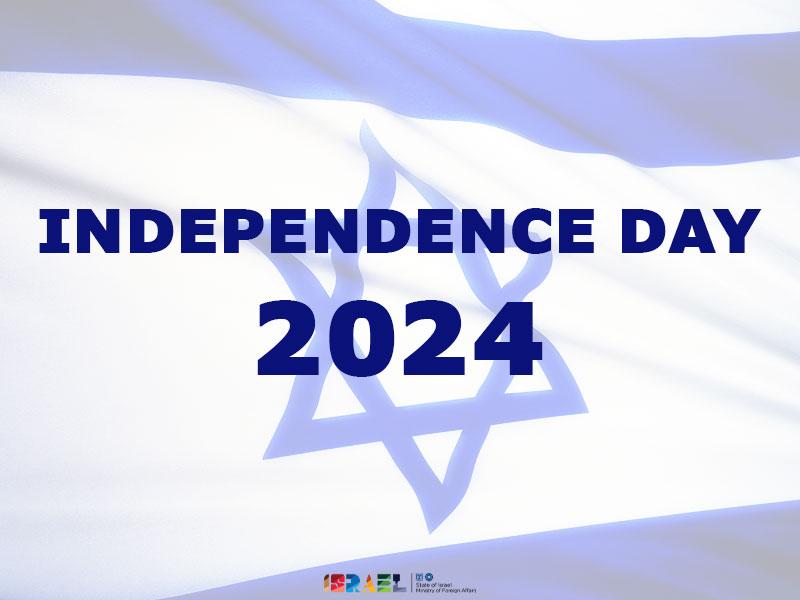Throughout their long history, the yearning to return to the Land of Israel has been the focus of Jewish life. Independence Day is a celebration of the renewal of the Jewish state in the land where the Jewish people began to develop their distinctive religion and culture some 4,000 years ago.

Israel Independence Day is celebrated annually on the anniversary of the establishment of the State of Israel, according to the Hebrew calendar, on the 5th day of the month of Iyar.
The day preceding this celebration is devoted to the memory of those who gave their lives for the achievement of the country's independence and its continued existence.
This proximity is intended to remind people of the heavy price paid for independence. On this day, the entire nation remembers its debt and expresses eternal gratitude to its sons and daughters who gave their lives for the achievement of the country's independence and its continued existence.
On May 14, 1948, the day the British Mandate expired, the new Jewish state - the State of Israel - was formally established in parts of what was known as the British Mandate for Palestine. With the establishment of the State of Israel in 1948, Jewish independence was restored after 2,000 years.
Independence Day is a celebration of the renewal of the Jewish state in the Land of Israel, the birthplace of the Jewish people. In this land, the Jewish people began to develop its distinctive religion and culture some 4,000 years ago, and here it has preserved an unbroken physical presence, for centuries as a sovereign state, at other times under foreign domination. Despite their dispersal to foreign lands and throughout their long history, the yearning to return to the land has been the focus of Jewish life. Theodor Herzl, the leader and founder of the Zionist movement, increased international recognition for the need of a Jewish state.
Since its establishment, Israel continues to be a homeland to the thousands who make their way to Israel annually. It is home to some of the holiest religious sites of the three major religions, all which enjoy the democratic rights delineated in the Declaration of the Establishment of the State of Israel.
Independence Day
Israel's 75th Independence Day celebrations will commence this year on Monday evening, May 13, immediately upon the conclusion of Memorial Day for the fallen soldiers and victims of terrorism, when the state flag is raised to full mast at a national ceremony on Mount Herzl, at which 12 torches are lit.
Independence Day is usually filled with festivities and celebrations including picnics, barbecues, family gatherings and nature trips. This year, however, due to recent events that included the massacre of some 1,500 people by Hamas terrorists who attacked from Gaza and the subsequent Swords of Iron War, festivities – both public and private – will be severely constrained.
Population of Israel
- The Central Bureau of Statistics announced that on the eve of Israel's 76th Independence Day, the population of Israel was 9.900 million (The estimates are based on the 2008 census)
- 7.427 million Jews (73.2%)
- 2.089 million Arabs2 (21.1%)
- 564,000 Others3 (5.7%)
- Since last year’s Independence Day, Israel's population has grown by 189,000 (an increase of 1.9%). During this period, about 196,000 infants were born, about 37,000 immigrants arrived, and about 60,000 persons died.
- At the time of the establishment of the State of Israel, the population of Israel was 806,000. It has increased by a factor higher than 12 since then.
- Since the State’s founding, over 3.4 million immigrants have arrived in Israel, about 1.6 million (47.1%) of them arrived since 1990. As a result, the allocation of Jews in Israel as a percentage of total Jewish population in the world grew from 6% on the country’s first anniversary to 44% on the eve of the 76th.
- In 1948, only Tel Aviv-Jaffa had more than 100,000 residents. Today there are 14 cities in Israel with a population of over 100,000, and 6 others with over 200,000 residents: Jerusalem, Tel Aviv-Jaffa, Haifa, Rishon Lezion, Ashdod and Petah Tikva.
